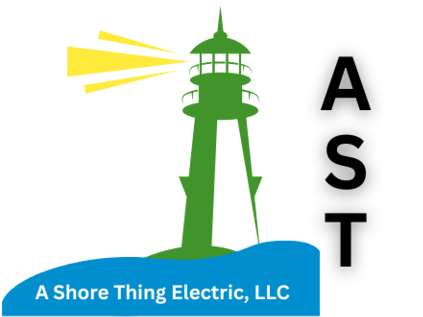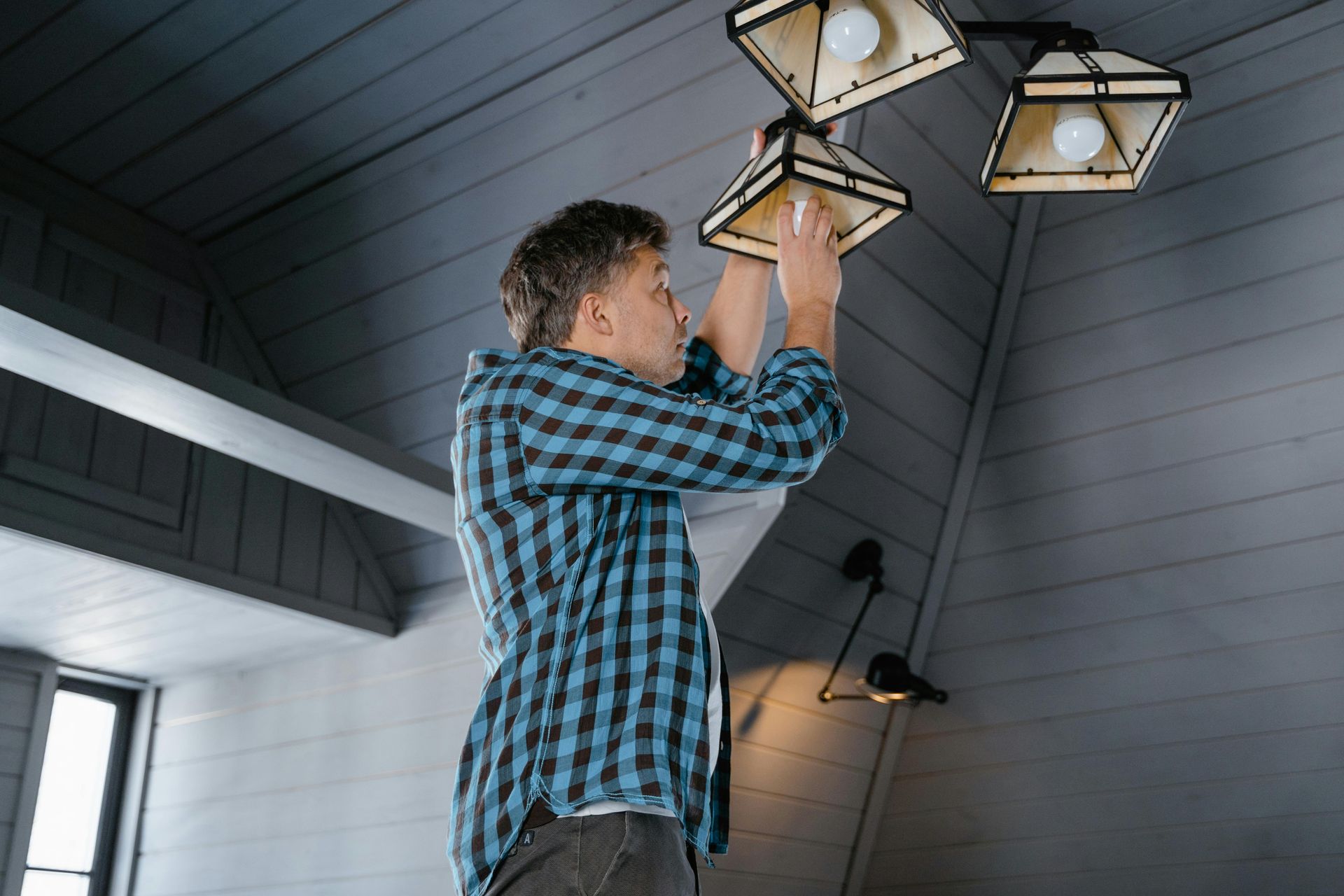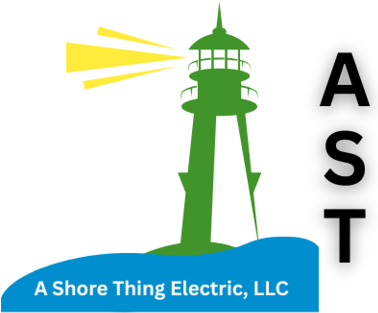Why Regular Electrical Inspections Save Money Long Term
Regular electrical inspections represent one of the most cost-effective investments homeowners can make in their property's safety and value. Professional electrical inspections in the United States typically range from $100 to $400, but this modest expense can prevent thousands of dollars in damage and repair costs down the line. Electrical issues alone can cause a whole slew of issues and safety concerns, making proactive maintenance essential for both financial protection and family safety.
According to the National Fire Protection Association, electrical failures and malfunctions are the second leading cause of home fires. Beyond the obvious safety implications, electrical problems can lead to expensive emergency repairs, insurance claims, and decreased property values. Regular home electrical checkups help identify potential issues before they escalate into costly disasters.
The financial wisdom of preventive electrical maintenance becomes clear when considering the long-term costs of electrical problems. A routine inspection costing a few hundred dollars can identify aging wiring, overloaded circuits, or outdated components that might otherwise lead to major system failures, fires, or equipment damage.
Key Takeaways
- Cost Prevention: Inspections help detect potential hazards such as faulty wiring or overloaded circuits that can cause fires or electrical shocks, allowing for early detection of potential issues and helping you avoid costly repairs or system failures in the future
- Energy Efficiency: By spotting outdated or inefficient components, inspections aid in improving your home's overall energy efficiency, potentially reducing your energy bills
- Insurance Benefits: Inspections can reduce fire risk and can help save money on insurance premiums while providing documentation needed for claims
- Property Value: Regular inspections and maintenance can enhance the value of your property, especially if you plan to sell in the future
- Safety Assurance: Professional evaluations ensure your electrical system meets current safety codes and National Electrical Code standards
- Problem Prevention: They can also catch problems before they start, saving money on repairs down the line
Understanding Electrical Inspection Frequency
The question of how often to schedule electrical inspections depends on several factors, including your home's age, recent modifications, and usage patterns. For most homes, an electrical inspection every 3 to 5 years is recommended. However, specific circumstances may require more frequent attention.
Standard Inspection Schedule
For average homes, inspections every three to five years provide adequate protection. This timeframe allows for the detection of normal wear and tear while maintaining cost-effectiveness. A residential electrical panel must be inspected by a professional electrician every five to ten years, though the entire system benefits from more frequent comprehensive reviews.
Special Circumstances Requiring More Frequent Inspections
Older homes over 25 years require more attention with checks every two to three years. Properties with aging electrical systems face higher risks due to outdated wiring standards and component deterioration. Homes that are 40 years old or more should have electrical safety inspections annually.
Newer construction built within the last decade typically needs inspections only every ten years, as modern electrical systems are built to current safety standards and use more durable materials.
Additional circumstances that warrant more frequent inspections include:
- Recent major renovations or additions
- Installation of large appliances or electric vehicle charging stations
- Frequent breaker trips or electrical issues
- High electrical usage households
- Plans to sell the property
The Financial Benefits of Regular Electrical Inspections
Regular electrical inspections deliver substantial financial benefits that extend far beyond the initial inspection cost. These advantages manifest in multiple ways, from direct cost savings to increased property values.
Insurance Premium Reductions and Claim Support
Many insurance companies offer premium discounts for homes with current electrical inspection certificates. These discounts acknowledge the reduced risk of claims from properly maintained electrical systems. There is another added benefit to electrical inspections when it comes to home insurance coverage. Having your home's electrical system routinely inspected is a necessity when it comes to coverage of certain claims.
Any damage to your home, fire, or natural disasters will require you to file a claim with your provider. Your insurance provider will likely require you to provide proof of past inspections before they cover your claims. This documentation proves that you maintained your electrical system properly, supporting your claim's legitimacy.
Energy Efficiency Improvements
Electrical inspections often reveal opportunities to save money on electricity bills through system improvements. Beyond safety concerns, electrical inspections often identify opportunities to improve system performance. These improvements include:
- Dedicated circuits for high-demand appliances to prevent overloads
- Updated outlets for modern electronics with specific power requirements
- Improved grounding for sensitive equipment protection
- Additional circuits to distribute the electrical load more evenly
These upgrades enhance system reliability while potentially reducing energy costs through more efficient power distribution and reduced resistance in connections.
Preventing Costly Emergency Repairs
The most significant financial benefit comes from preventing expensive emergency repairs and replacements. Quite often, an electrical inspection will reveal a few small problems that need to be fixed. The good news is that this will usually save you money down the line.
Early detection of electrical problems prevents minor issues from escalating into major system failures. A loose connection identified during inspection might cost $100 to repair, but if left unchecked, it could cause a fire, resulting in tens of thousands of dollars in damage.
What Professional Electrical Inspections Include
Understanding what a professional electrical inspection entails helps homeowners appreciate the value they receive for their investment. During the inspection, your electrician will follow the National Electrical Code (NEC) to ensure your home is safe and up to legal safety standards.
Comprehensive System Evaluation
They'll check your electrical system, including wires, appliances, meter box, panel, circuit breakers, and more. During an electrical inspection, an electrician will examine 5 main areas throughout your home. You can think of these areas as an electrical checklist: electric meter, electrical wiring, circuit breaker, GCFI outlets, and electrical outlets.
The inspection process includes visual examination of accessible wiring, testing of outlets and switches, verification of proper grounding systems, assessment of electrical panel capacity and condition, and evaluation of code compliance throughout the system.
Professional Documentation and Recommendations
Afterward, you'll receive a detailed checklist of everything they examined, along with a report highlighting any urgent issues—often with photos. At the end of your inspection, you will receive the results from your electrician. This written feedback will show you areas that need to be fixed, upgraded, or improved. Additionally, special attention will be given to areas that are immediate safety hazards.
They might also offer tips on how to save energy and improve your system's efficiency, providing additional value beyond basic safety verification.
Duration and Process
An electrical inspection usually takes one to two hours. This entire process shouldn't take more than an hour or two. The relatively brief time commitment makes scheduling inspections convenient for homeowners while providing a comprehensive system evaluation.
Warning Signs That Demand Immediate Inspection
Certain electrical symptoms indicate potential safety hazards that require immediate professional attention, regardless of your regular inspection schedule. Recognizing these warning signs can prevent dangerous situations and costly damage.
Critical Safety Indicators
Several electrical behaviors signal the need for emergency inspection. Many homeowners report smelling burning plastic or trash near their outlets and fixtures. Circuit breakers, in particular, often smell foul right before an electrical fire breaks out.
Sometimes, electrical fixtures make bizarre noises. Humming, buzzing, or crackling might not bother some homeowners, but these weird sounds indicate serious trouble. Loose wires often make humming noises, for instance.
Your home's switches, sockets, and circuit breakers shouldn't be hot to the touch. Often, old or frayed wiring causes heat buildup. When left unaddressed, this heat can create sparks that might result in a fire.
Choosing the Right Licensed Electrician
The quality of your electrical inspection depends heavily on selecting a qualified professional. Only a licensed electrician or an electrical contractor can perform an electrical inspection. Requirements vary by state, as do the processes associated with licensing for electricians.
Credentials and Insurance
When you hire an electrician to do your home electrical inspection, make sure they are licensed and carry insurance in the event of injury or damage to your property. Proper licensing ensures the electrician understands current codes and safety standards.
The cost of an electrical inspection can vary depending on the inspector's expertise and certification level. It's more expensive to work with a more experienced electrician; however, some homes or complicated electrical repairs may require a more seasoned pro.
When selecting a licensed electrician in Howell or your local area, consider their experience with homes similar to yours, availability for follow-up work if needed, references from recent customers, and understanding of local electrical codes.
Frequently Asked Questions
How much does a typical electrical inspection cost?
The average cost for an electrical inspection is $150, with most homeowners paying between $100 and $400. The price varies based on your home's size, age, and the complexity of your electrical system.
What happens if the inspection reveals problems?
When you get a home electrical inspection, it's very common for the electrician to find some type of issue. The cost to make the necessary repairs and upgrades will be in addition to the cost of the home electrical inspection.
Can I inspect my electrical system myself?
While homeowners can perform basic visual checks, professional inspection requires specialized knowledge and equipment that only licensed electricians possess. DIY electrical work can be dangerous and may void insurance coverage if problems arise.
How long does an electrical inspection take?
A home electrical inspection usually takes one to two hours. Full home inspections fall on the longer side, while code compliance inspections that focus on a single repair or installation may only take a few minutes.
Are electrical inspections required by law?
While it's not mandatory unless you're purchasing a home, it is important to schedule regular home electrical inspections for safety and to maintain your house's value. Some insurance companies and local jurisdictions may have specific requirements for certain situations.
Final Thoughts
The decision to invest in regular electrical inspections proves financially wise when considering both immediate and long-term benefits. The modest cost of professional electrical inspections pales in comparison to the potential expenses of electrical fires, emergency repairs, or system failures. Over time, these savings can offset the cost of regular inspections.
Beyond pure financial considerations, electrical inspections provide peace of mind that your family's safety and your property investment are protected. The electrical inspection benefits extend from reduced insurance premiums and improved energy efficiency to enhanced property values and code compliance.
Regular home electrical checkups represent a proactive approach to home maintenance that pays dividends in safety, savings, and system reliability. Whether you schedule inspections every three to five years for newer homes or annually for older properties, the investment in professional electrical evaluation consistently proves its worth by preventing problems and optimizing system performance.
Don't Wait for Electrical Problems - Schedule Your Safety Inspection Today!
Reference:
https://www.nfpa.org/codes-and-standards/nfpa-70-standard-development/70



